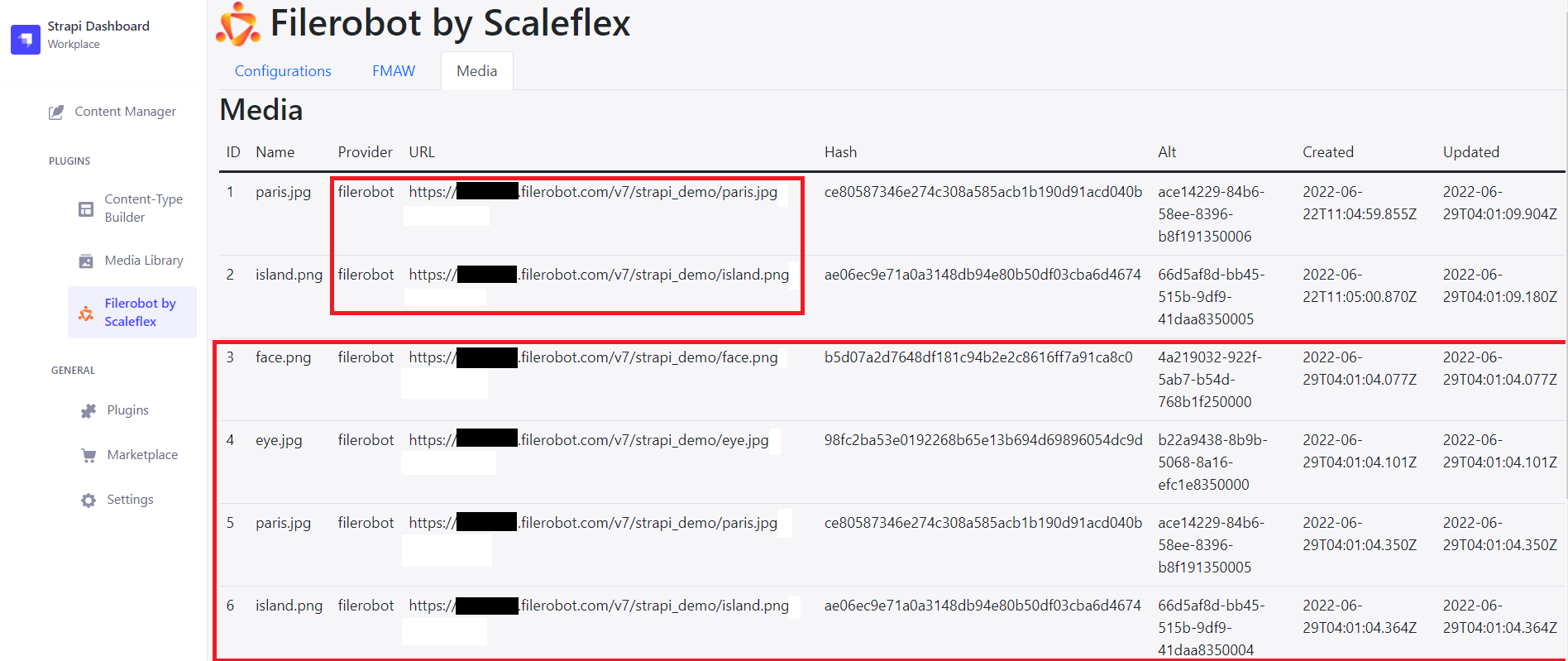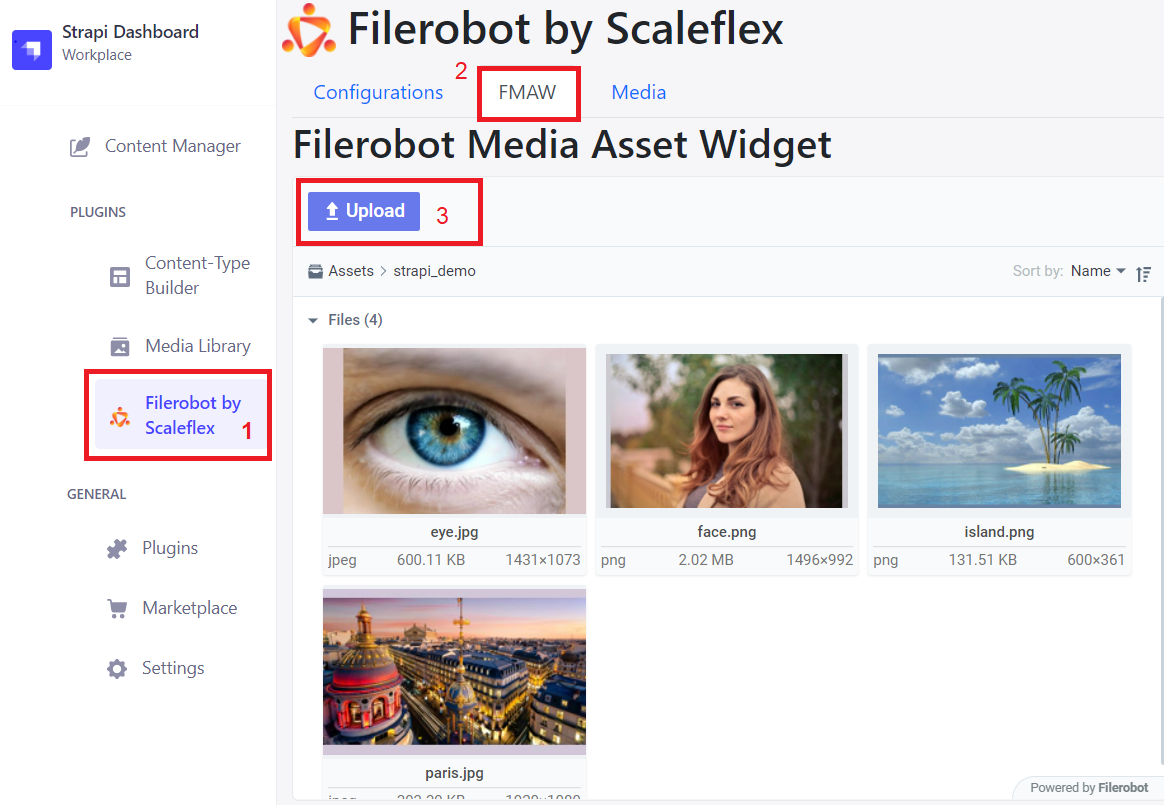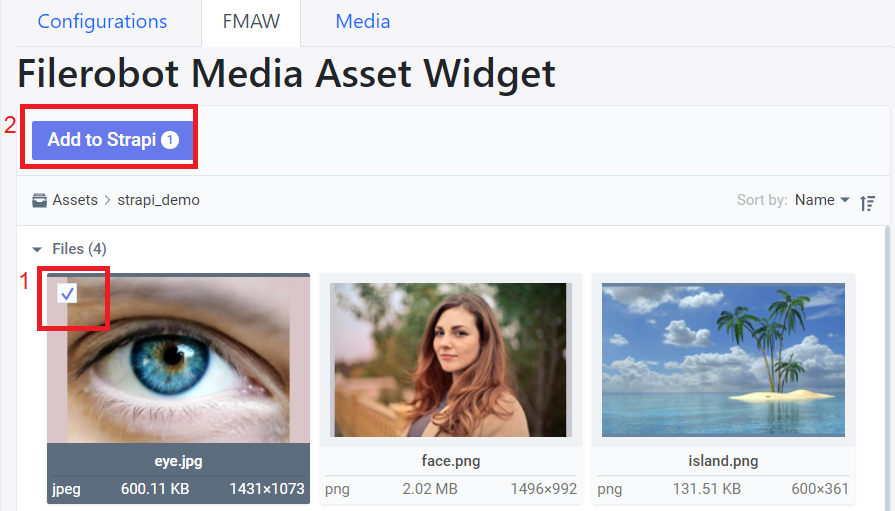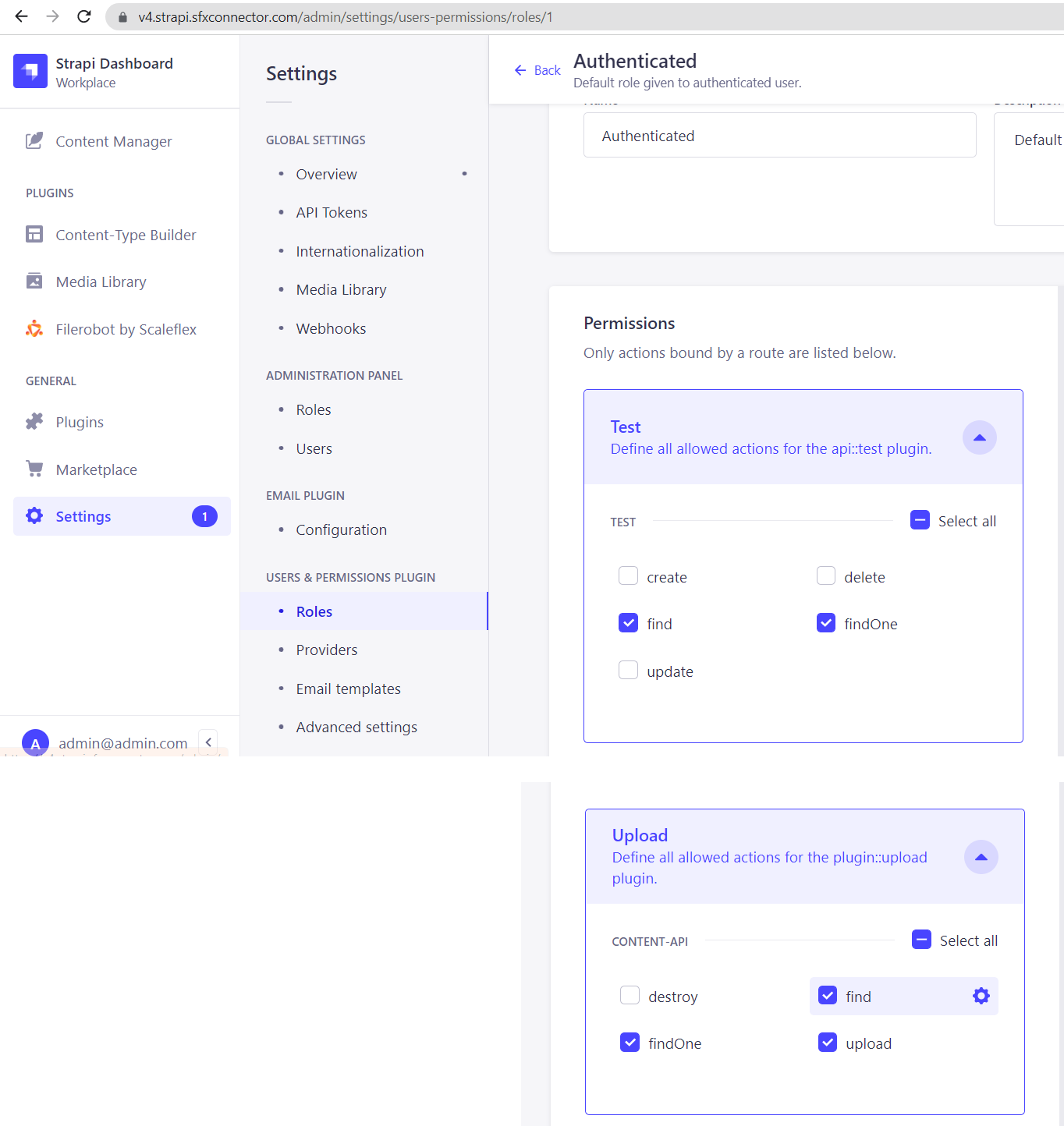Strapi v4 plugin for Filerobot by Scaleflex
Intro
Strapi v4.x.x
To know which versions of Node goes with which versions of Strapi, refer to here: https://github.com/strapi/strapi/releases
If you are not familiar with using the Strapi CMS, here are some quick tutorials:
Strapi v4: https://docs.strapi.io/developer-docs/latest/getting-started/quick-start.html
Install Strapi CMS
You can run, for example: npx create-strapi-app@4.3.0
Plugin
https://www.npmjs.com/package/@filerobot-strapi/content-plugin
At this point, assuming that you already have a Strapi CMS installed and set up, and that you already have a super-admin user configured. It's time to install the Scaleflex Filerobot plugin for Strapi v4:
npm install @filerobot-strapi/content-plugin
(Use npm install @filerobot-strapi/content-plugin --legacy-peer-deps if you need to)
Run
yarn build
yarn start
Configure
Click "Filerobot by Scaleflex" on the left vertical menu (under the plugins section)
-
CNAME should be without
https:// -
Folder can have a preceding
/, but it's not necessary. So both/folder_nameandfolder_nameare ok
Usage
Now you can make use of the "Synchronization Status" and "Trigger Synchronization" buttons.
Media Tab
The Media Tab keeps a "log" of all your media assets.
Note: when provider is local, the Hash is like a "unique name" generated by Strapi, and the Alt is like an "alternative name" generated by Strapi.
Indeed, there are 2 local images that are yet to be synchronized to the Filerobot platform.
And there are indeed 4 remote images on the Filerobot platform that are yet to be synchronized down to the Strapi CMS.
Trigger Synchronization
Afterwards, the logs will be updated:
Note: when provider is filerobot, the Hash is Filerobot's file -> hash -> sha1, and the Alt is Filerobot's file -> uuid.
FMAW Tab
When you Upload, the image will be uploaded to the Filerobot platform. Also, the same image (with Filerobot's URL) will go into the Strapi CMS:
If you know that eye.jpg only exists on the Filerobot platform (ie: haven't yet been synchronized down to the Strapi CMS), then you can check it and press "Add to Strapi":
REST API
Give the appropriate permissions to the authenticated user
Get the auth token
https://www.youtube.com/watch?v=TIK9CYDgs5k&list=PL2dKqfImstaROBMu304aaEfIVTGodkdHh&index=3 (even though this tutorial is for Strapi v3, it's still applicable to Strapi v4)
curl --location --request POST '{domain}/api/auth/local'
--form 'identifier="{an authenticated user's email}"' \
--form 'password="{an authenticated user's password'}"'
Retrieve Media
https://docs.strapi.io/developer-docs/latest/plugins/upload.html#endpoints
GET all media
curl --location --request GET '{domain}/api/upload/files' \
--header 'Authorization: Bearer {token}'
GET one media
curl --location --request GET '{domain}/api/upload/files/3' \
--header 'Authorization: Bearer {token}'
Retrieve custom content-types
GET collection-type contents
curl --location --request GET '{domain}/api/tests' \
--header 'Authorization: Bearer {token}'
GET one collection-type content
curl --location --request GET '{domain}/api/tests/1' \
--header 'Authorization: Bearer {token}'
Note: If your content-type contains Media fields, then you have to append this query parameter for media info to show ?populate=%2A







